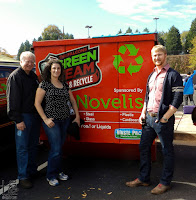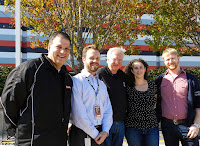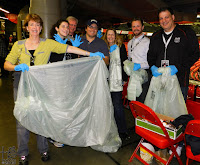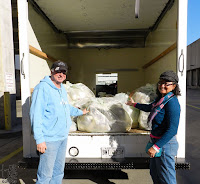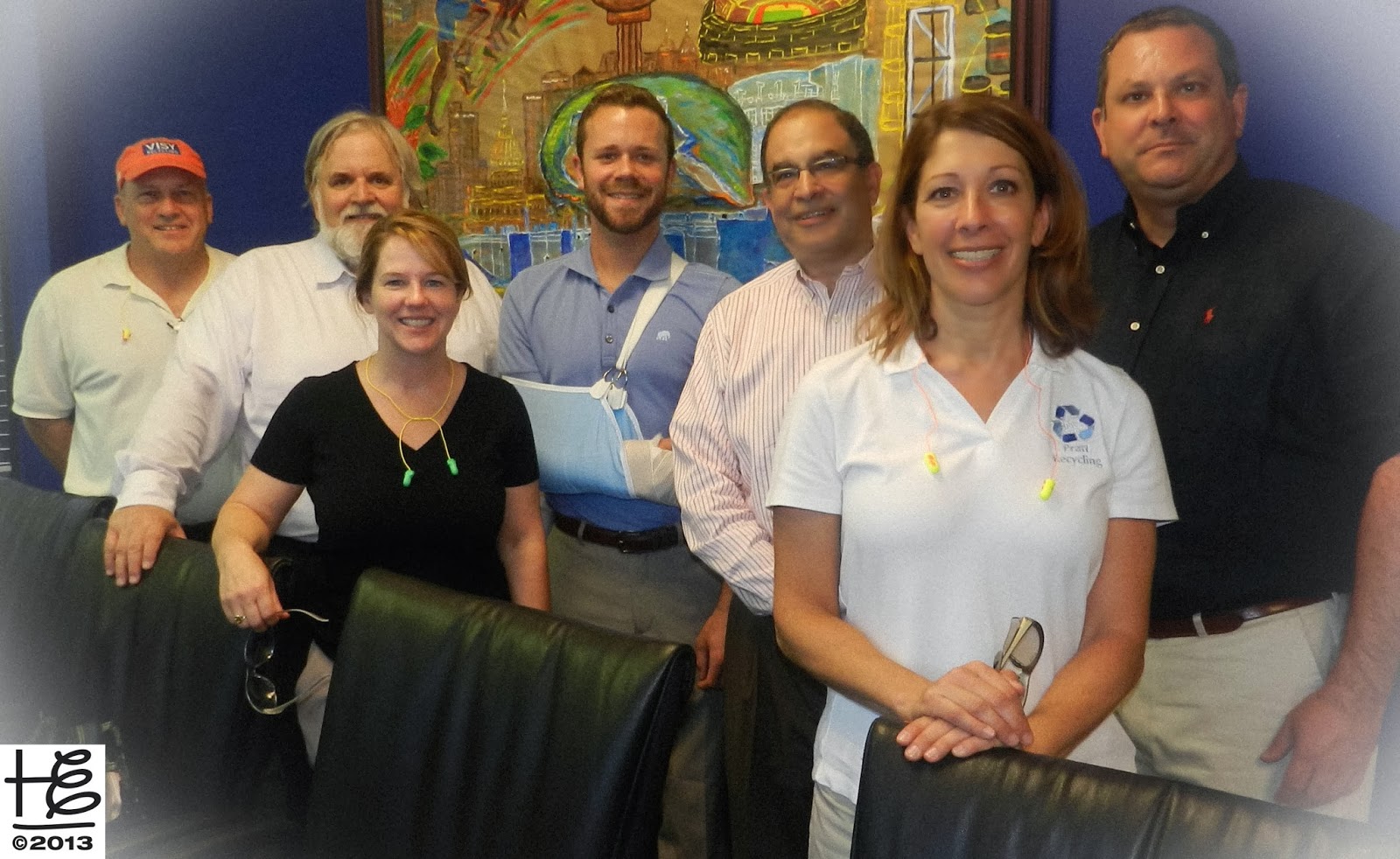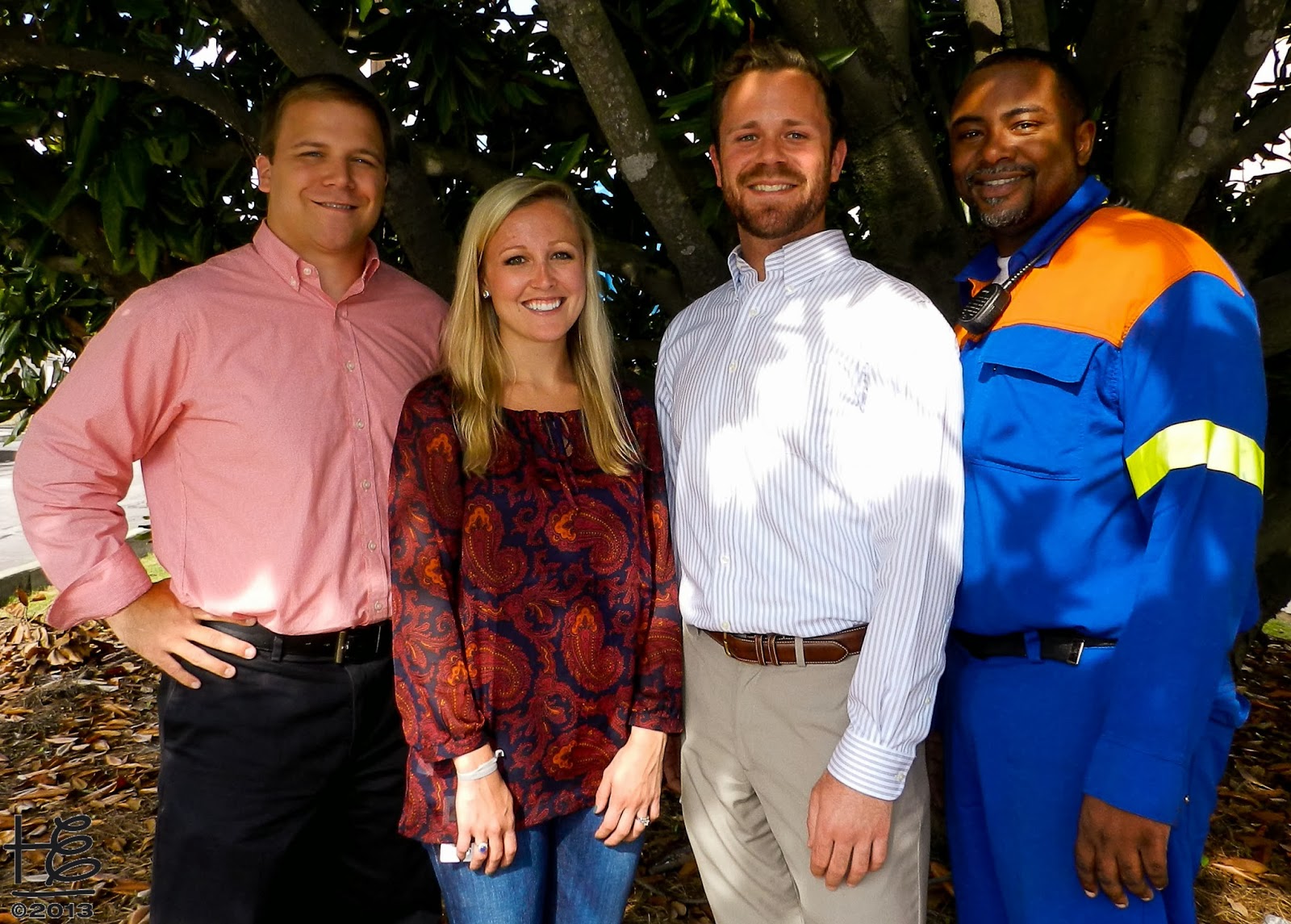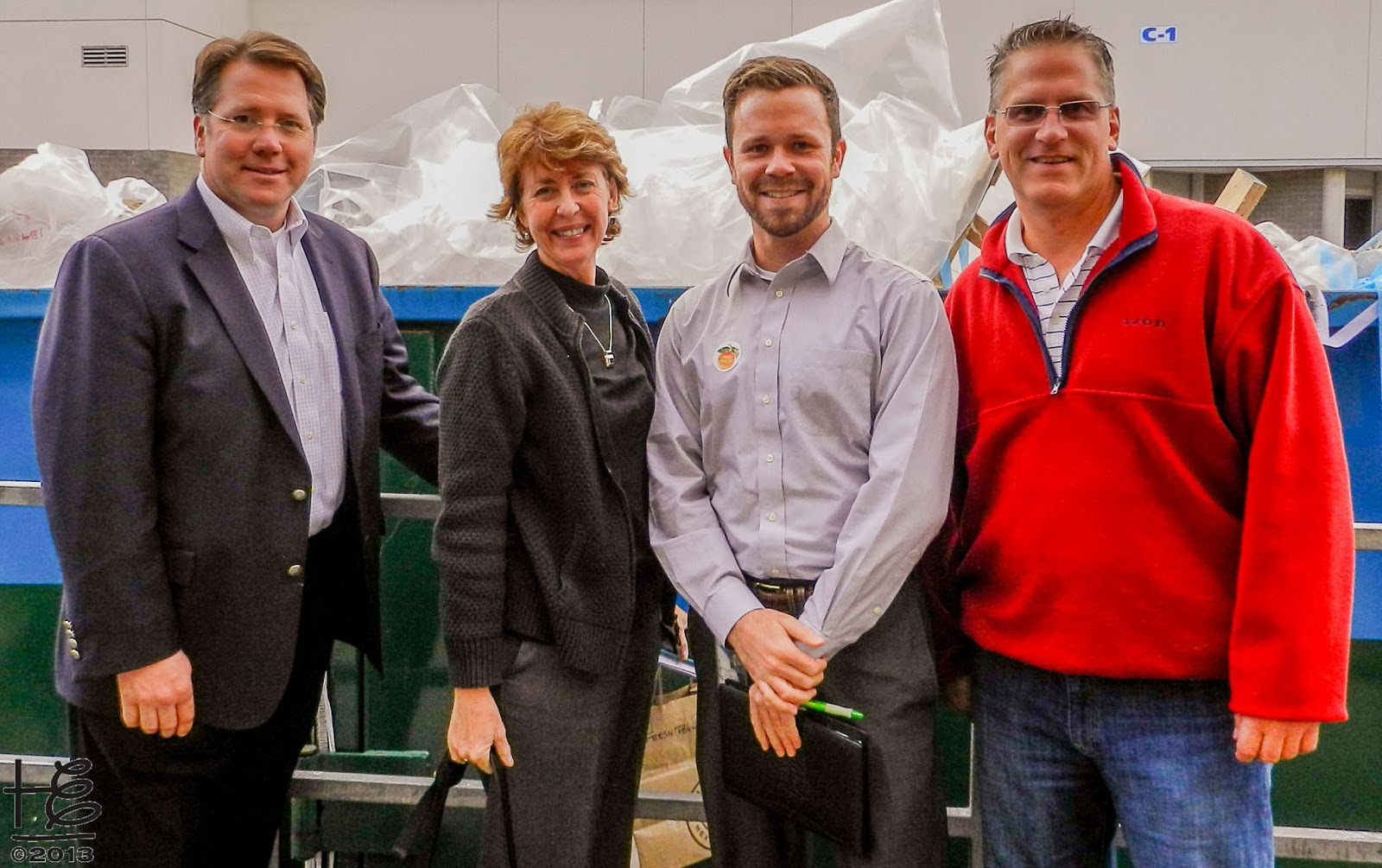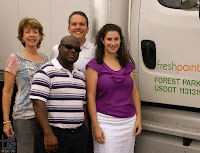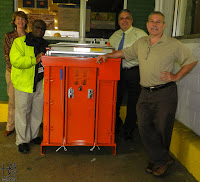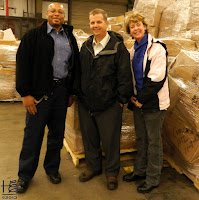 |
| Airborne Kitchen Grease is a by-product of culinary operations |
In alignment with an Ei mantra: Ei determines what could be done that is not being done and gets it done, the Ei Team explores areas of significant corporate water consumption where technologies exist to reduce or eliminate water usage. Equipment investment must be offset by water and other cost-savings with a reasonable ROI – return on investment.
The initial focus is on water reduction in areas where the “spent water” released into sewer systems or other waterways is laden with toxic chemicals. Thus, water use and toxicity are addressed in unison. Airborne Kitchen Grease (AKG) is a perfect starting point for Water Use | Toxicity initiatives.
 |
| ATL Airport concessionaire mgr Kyle Mastin learning about AKG |
Most kitchen exhaust systems are inspected monthly or quarterly and require a system cleaning due to grease build-up. On average an exhaust system cleaning uses approximately 350 gallons of water along with toxic cleaning agents. In addition, the metal baffle filters are generally cleaned nightly, requiring labor, water and toxic cleaning chemicals. On average 40 gallons of water is used for nightly baffle filter cleaning.
Ei Partner Ellis Fibre (EF) manufactures a patented, disposable grease filter that is placed in front of the baffle filters. EF's Grease Lock Filters (GLF) collect 90% plus of the kitchen grease particulates before entering the kitchen exhaust system. By eliminating grease build-up in the system, the nightly baffle filter cleaning is generally reduced to weekly; the number of third party contracted kitchen exhaust system cleanings are often required annually, down from monthly or quarterly.
 |
| Installed Grease Lock Filter system |
To maximize impact, Ei is developing a city-wide AKG initiative. Addressing four key areas is the first step in template creation:
- Fire Safety
- Cost-Savings
- Metrics Platform
- Filter End-of-Life
Fire Safety:
First and foremost is fire safety. Before GLF approached Ei, fire safety was thoroughly addressed. Made from a patented, proprietary-blend of sheep's wool and other natural fibers, the filter is naturally oil absorbent and flame resistant. The filter composition allows GLF to keep the grease out of the hood and increase restaurant fire safety.
Certified to UL Standard 1046, GLF will not support combustion. Grease collected on the filter may flare-off if excessively heated or subjected to flames; however, when the flame source is removed the filter will self-extinguish and is replaced with a new filter.
Certified to UL Standard 1046, GLF will not support combustion. Grease collected on the filter may flare-off if excessively heated or subjected to flames; however, when the flame source is removed the filter will self-extinguish and is replaced with a new filter.
GLF is tested, compliant and/or recognized by the following:
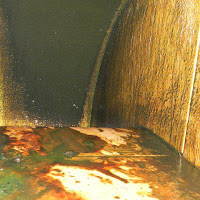 |
| Grease accumulation in the kitchen exhaust system |
- Standard UL 1046/ULC-S649 & UL 710 – Flame Exposure & Abnormal Flare-Up Test
- NFPA 96 / IFC – Ventilation Control & Fire Protection of Commercial Cooking Operations
- NSF 2 / ANSI 51 – Food Equipment & Materials-Formulation Review (Sanitation/Toxicology)
- TYCO – World Leader In Fire Suppression Systems
- IMC/UMC - Protects Public Health & Safety For All Building Ventilation Design
With fire safety addressed, the next step is to ensure GLF improves a foodservice operator's bottom line.
Cost-Savings:
To substantiate and quantify the water, labor and toxic chemical savings, Ei joined forces with Compliance Solutions International for a three-restaurant, eight-week GLF system pilot. The Water, Chemical, & Cost Savings in Commercial Kitchens By Using Grease Lock Filters, A Report on Restaurant Pilots prepared by Jay Parikh, CSI president is downloadable on the Ei Airborne Kitchen Grease page.
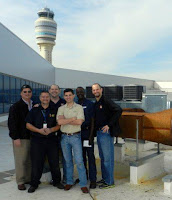 |
| GLF | HMSHost Team day before the GLF installation |
In
addition to the documented labor, water and chemical savings in the report, the
facility experiences reduced fire risk and repairs & maintenance due to
less grease accumulation within the exhaust system and the roof ventilation
area. The community benefits from reduced emissions due to fewer full-exhaust system cleanings by a third party who travels to the kitchen.
Metrics Platform:
Program success is substantiated by quantifiable data. For the GLF system, measurable success is multi-faceted for the foodservice operator, building owner and the community.
The foodservice operator experiences cost-savings from reduced third party full-system cleanings, labor for baffle filter cleaning, and water usage. Easily quantified, GLF is building a metrics collection platform that calculates and presents the savings in a simple format for the operator.
In addition to single-operator reports, the platform aggregates savings by companies, territories or whatever other filters are added to the system. The intention is to also track the tremendous water savings for a metro area.
Later template stages will incorporate roof repair & maintenance savings, lower carbon emission from fewer truck miles driven for cleanings, reduced toxic cleaning agents sent to the sewer systems, and improved community air quality due to reduced grease particulates released into the atmosphere from the exhaust system.
Later template stages will incorporate roof repair & maintenance savings, lower carbon emission from fewer truck miles driven for cleanings, reduced toxic cleaning agents sent to the sewer systems, and improved community air quality due to reduced grease particulates released into the atmosphere from the exhaust system.
Filter End of Life:
 |
| Grease-laden filter next to new filter |
The grease collected by the filters is a potential valuable GLF system by-product. In the next months, extraction tests will determine the value compared with the effort required to remove grease from filters as a usable commodity.
With a scenario where all parties benefit - foodservice operator, facility owners, communities and the environment - Ei is developing a strategic plan for a metro-wide GLF installation. Atlanta is the template pilot city.
 |
| SFCI Team @ ATL Airport |
An Atlanta Airport campus-wide GLF installation is estimated to reduce water usage by 1.1 million gallons per year and on average save each concessionaire $7,500 per year.
For GLF installation pictorial recaps at the Atlanta Airport, see the Ei FB albums, 02-20-13 Grease Lock Filter Pilot Tour and 04-17-13 SFCI Team Tour - ATL Airport Int'l Concourse.
For GLF installation pictorial recaps at the Atlanta Airport, see the Ei FB albums, 02-20-13 Grease Lock Filter Pilot Tour and 04-17-13 SFCI Team Tour - ATL Airport Int'l Concourse.
Airborne Kitchen Grease is a new frontier in sustainability. Water usage reduction is the first quantifiable step followed by eliminating significant amounts of toxic cleaning agents from entering the sewer system. Final steps address the airborne grease particulates not dispersed into the atmosphere, impacting air quality.
ZWA Blog articles will chronicle action taken, success achieved and how challenges evolve into lessons learned. Within frontiers, pioneers develop the most effective paths and create new standard practices. Kudos to the Atlanta Airport and HMSHost for taking the leadership role as Airborne Kitchen Grease pioneers!

